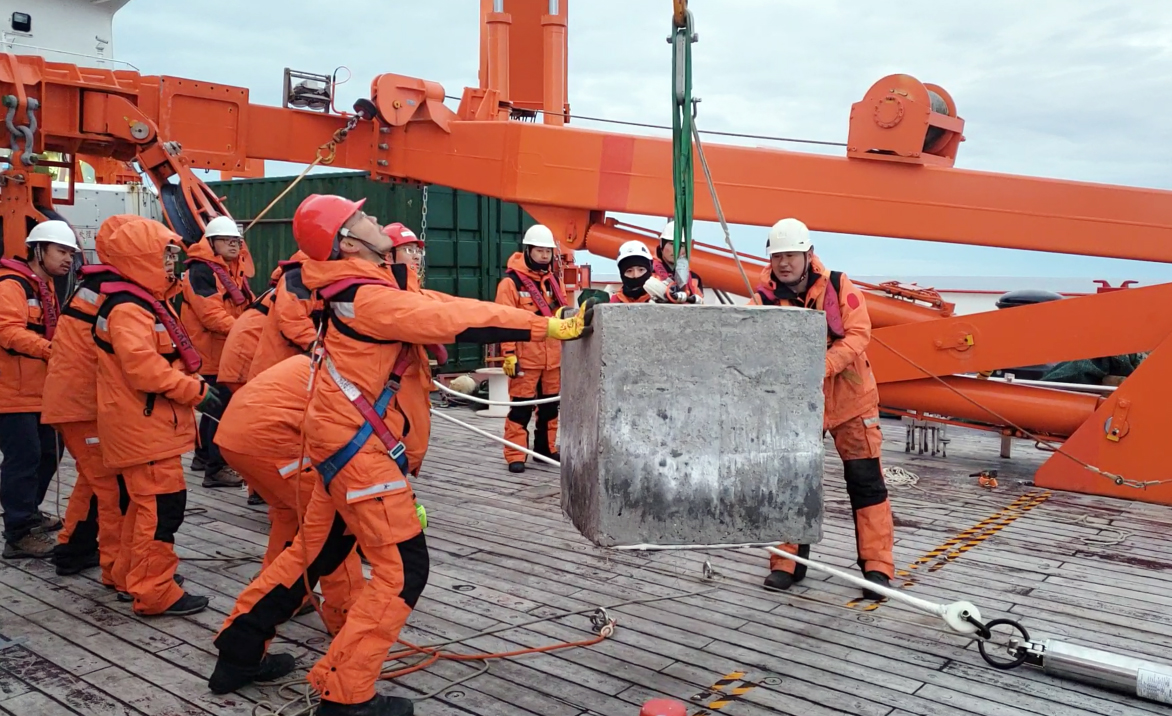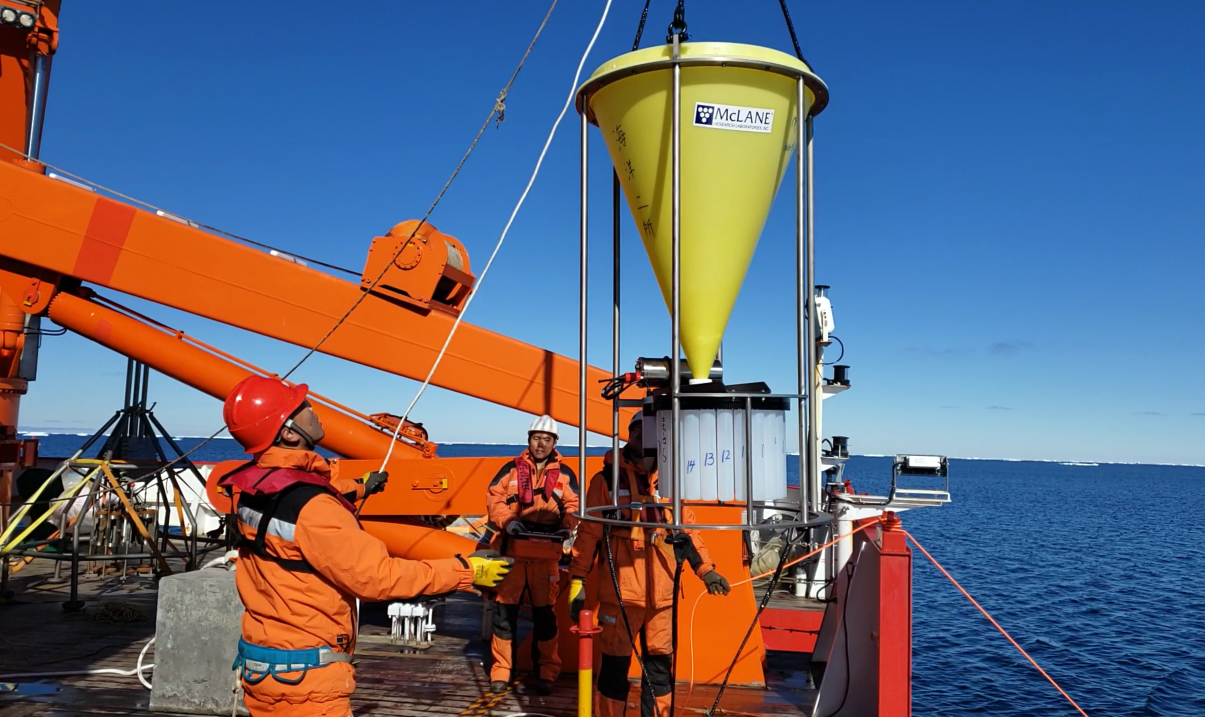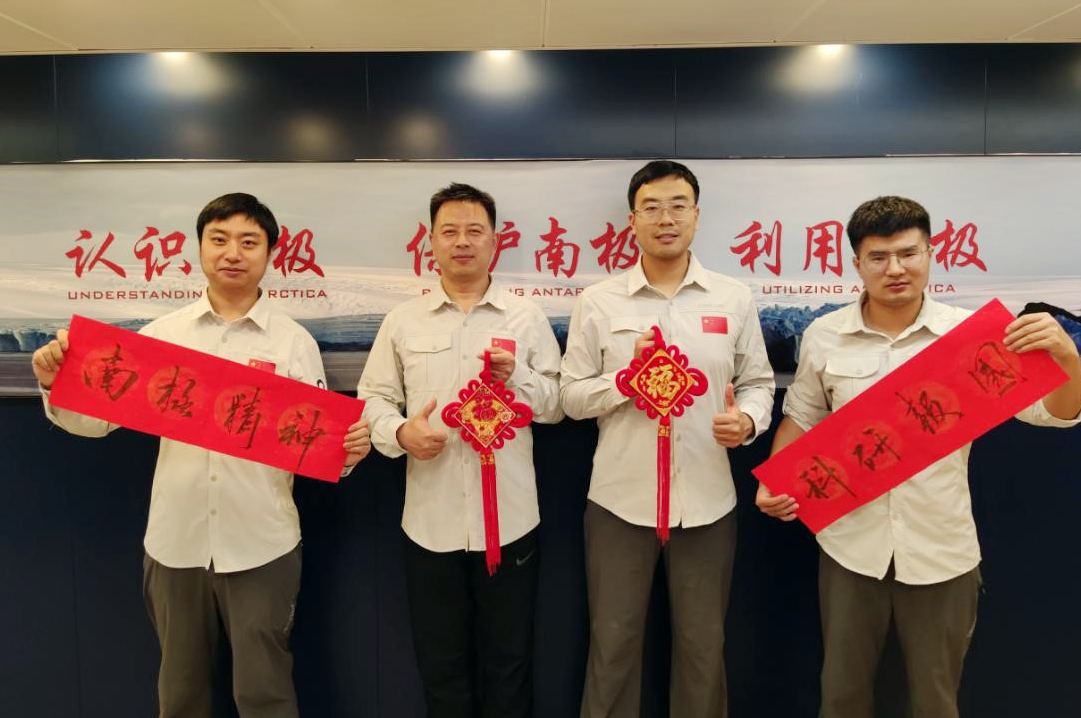News



Recently, China’s 37th Antarctic Scientific Expedition Team, with associate researcher Zhao Jun as the chief scientist, successfully completed the first phase of ecological environment survey of the Southern Ocean. Associate researchers Li Dong and Yang Xufeng, and assistant researcher Zhu Yuanli from Key Laboratory of Marine Ecosystem Dynamics of Ministry of Natural Resources participated in the whole process
During the operation, the researchers of SIO obtained basic biochemical data such as nutrients, dissolved oxygen and chlorophyll at the full station and full water depth in the two waters of Prydz Bay and Astronaut Sea, as well as biochemical samples, such as granular organic carbon, pigment, primary productivity that were shallower than the euphotic zone, and successfully deployed three sets of marine biogeochemical comprehensive observation submersible buoy system. The submersible buoy system is located in the glacial lake of Prydz Bay, the Enderby Land in the middle of the Astronaut Sea, and the seamount on the west side. The submersible buoy system at the seamount is more than 1500 meters long. It is the first to carry a dual sediment trap for observation of the source and sink process of sedimentation particles in different water layers. In addition to sediment traps, ocean current meters and other instruments, the submersible buoy system deployed this time also included many other sets of equipment with various observation parameters. It is planned to be recovered next year. At that time, the submersible buoy system will collect the sedimentation particulate matter in the water at different times of the year, and monitor the temperature and salinity at different depths and current conditions in real time. The seawater samples collected by the ocean survey and the long-term series data recorded by the submersible buoy observations will help to study the operating efficiency and change laws of the biological pumps in the sea area, and further reveal the interaction principle between the physical-chemical change process and ecosystem in the key polar sea areas significantly affected by climate change and make China's contribution to the study of Southern Ocean ecosystems and global climate change.



